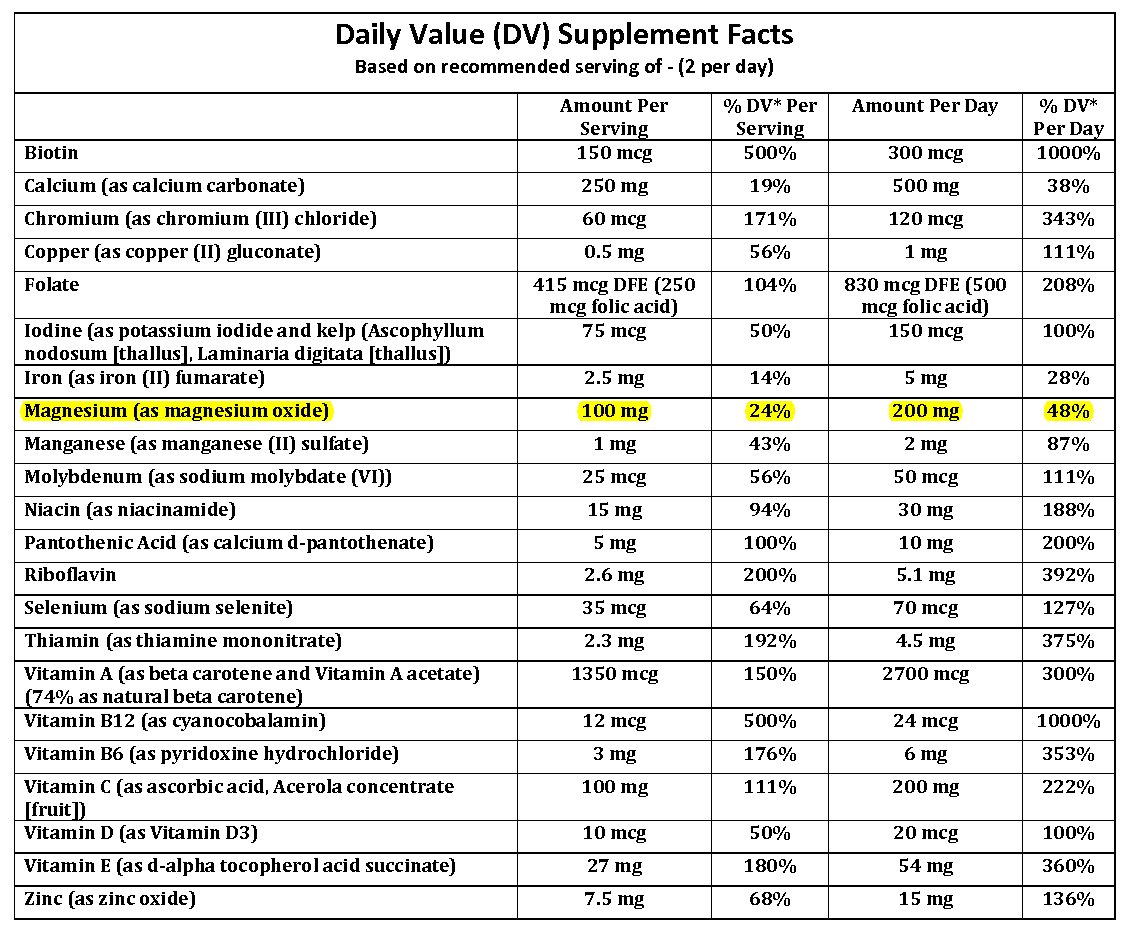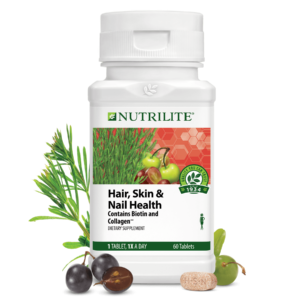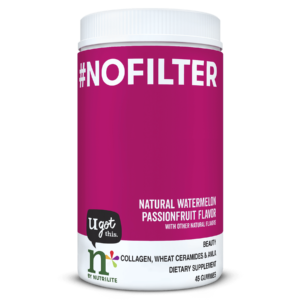
Collagen...
What is it?
and
Why do we need it?
Collagen is a type of protein. In fact, it’s the most abundant structural protein in animals. A structural protein is one that makes up the structure or framework of your cells and tissues.
Collagen is composed mainly of the amino acids glycine, proline, and hydroxyproline. These amino acids form three strands, which make up the triple-helix structure characteristic of collagen.
Collagen accounts for 30% of your body’s protein. It provides structure, support or strength to your skin, muscles, bones and connective tissues.
Collagen is found in connective tissue, skin, tendons, bones, and cartilage. It provides structural support to tissues and plays important roles in cellular processes, including
- tissue repair
- immune response
- cellular communication
- cellular migration, a process necessary for tissue maintenance
Collagen Uses
The main five types of collagen and what they do are:
- Type I. This type makes up 90% of your body’s collagen. Type I is densely packed and used to provide structure to your skin, bones, tendons, and ligaments.
- Type II. This type is found in elastic cartilage, which provides joint support.
- Type III. This type is found in muscles, arteries, and organs.
- Type IV. This type is found in the layers of your skin.
- Type V. This type is found in the cornea of your eyes, some layers of skin, hair, and tissue of the placenta.
- Proline: found in egg whites, dairy, cabbage, mushrooms, and asparagus
- Glycine: found in pork skin, chicken skin, and gelatin, and a variety of other protein-rich foods
- Vitamin C: found in citrus fruits and bell peppers
- Zinc: found in beef, lamb, pork, shellfish, chickpeas, lentils, beans, milk, cheese, and various nuts and seeds
- Copper: found in organ meats, cocoa powder, cashews, sesame seeds, and lentils
Healthcare professionals also use collagen and collagen-based materials in the medical field, including in treating wounds, burns, and diabetic ulcers.
what happens to collagen as i age?
Your body produces less collagen as you age, and existing collagen breaks down at a faster rate. The collagen is also lower in quality than when you were younger. Women experience a significant reduction in collagen production after menopause. It’s normal for everyone to experience a decline in collagen production after age 60.
what a collagen peptides?
Collagen peptides are small pieces of animal collagen. Collagen can’t be absorbed in a whole form. It has to be broken down into smaller peptides or amino acids. Oral collagen supplements come in the form of pills and powders. They usually contain two or three amino acids. They are sold as collagen peptides or hydrolyzed collagen. Collagen peptides are absorbed through your gastrointestinal tract.
What does the research say about the effectiveness of collagen supplements?
There’s a lack of randomized controlled trials of dietary supplements (the gold standard to test the effectiveness of medications). The few such studies that have been done have found that collagen peptides are possibly effective for improving skin hydration and skin elasticity. It’s also possibly effective for relieving pain and improving joint function in people with knee osteoarthritis
Collagen can’t be measured — for instance, in a blood test — but there are signs that your collagen level is decreasing. These signs and symptoms include:
- Skin that’s wrinkled, crepey or sagging.
- Hallowing in and around your eyes and face.
- Shrinking, weakening muscles and muscle aches.
- Stiffer, less flexible tendons and ligaments.
- Joint pain or osteoarthritis due to worn cartilage.
- Loss of mobility due to joint damage or stiffness.
- Gastrointestinal problems due to thinning of the lining of your digestive tract.
- Problems with blood flow.
Avoid these factors, which can decrease collagen levels in your body:
- Smoking. Smoking decreases collagen production. It damages collagen and elastin, leading to wrinkles and slow wound healing. Nicotine constricts blood vessels near your skin’s surface, preventing the delivery of oxygen and nutrients.
- Eating too much sugar and refined carbs. Sugar attaches to proteins to form advanced glycation end products. These molecules damage nearby proteins and cause collagen to become weak, dry and brittle.
- Exposure to ultraviolet light. Too much sunlight reduces collagen production and caused collagen to break down more rapidly. Ultraviolet sunlight causes wrinkles. Avoid excessive sun exposure and always wear sunscreen (SPF 30 and higher) when you’re outside.
Healthy Lifestyle Habits That May Help
Along with a healthy and balanced diet, here are some habits that may help protect your body’s natural collagen:
- Wear sunscreen or limit the amount of time spent in direct sunlight (10-20 minutes in direct midday sunlight 3-4 times a week provides adequate vitamin D for most people).
- Get adequate sleep. For the average person, this means 7-9 hours a night.
- Avoid smoking or secondhand smoke.
- Control stress. Chronically high cortisol levels can decrease collagen production.
- Although the exact connection between exercise and skin quality is unclear, some studies have found that exercise slows down cell activity involved with aging skin.



